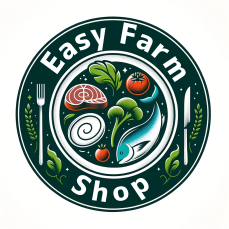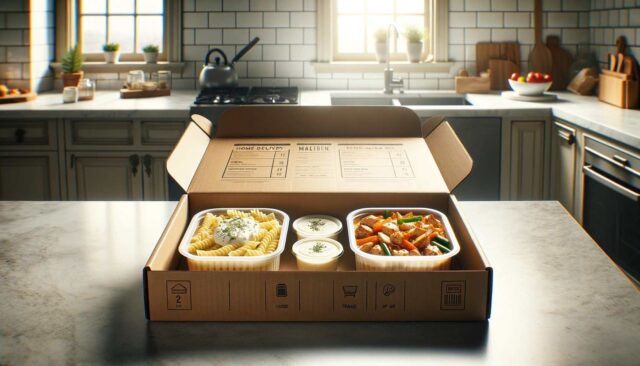Food Delivery Meal Boxes: Ethical and Sustainable Aspects
Food delivery meal boxes have long been a subject of debate regarding their ethical and sustainable credentials. Several studies and articles shed light on this topic, providing insights into the environmental impact of meal kits and their potential ethical considerations.
Environmental Impact
Several studies suggest that meal delivery kits can be more environmentally friendly than traditional grocery shopping due to reduced food waste and lower carbon emissions in the supply chain. A study published in the journal “Resources, Conservation and Recycling” argues that meal kits have a smaller carbon footprint than equivalent meals bought from a grocery store and prepared at home. The study found that the environmental impact of packaging is relatively small compared to the quantity of food wasted throughout the supply chain. Additionally, some meal delivery companies are working to limit packaging waste and make use of biodegradable and recyclable materials.
Ethical Considerations
Meal delivery services can also be considered ethical, as some companies have partnered with charities and donate a portion of their profits to help people who can’t afford healthy food. Moreover, certain companies have green ethics at the core of their business, offering eco-friendly meal boxes. For instance, some companies offer plant-based recipes, recyclable and biodegradable packaging, and carbon-neutral deliveries, contributing to their ethical and sustainable practices.
Environmental Impacts of Food Delivery Meal Boxes
The environmental impact of food delivery meal boxes has been a topic of discussion, with several studies and articles shedding light on this issue. A study found that the environmental impact of meal kits beyond food waste reduction is minimal, and meal kits can have a significant impact on food waste reduction due to precisely measured ingredients and portions. While meal kits come with a lot of packaging, most meal kits have a smaller emissions footprint than grocery store meals, as they tend to produce lower carbon emissions in the supply chain. Some meal kit companies make use of carbon-neutral deliveries or electric vehicles to deliver their meal kits, contributing to lower greenhouse gas emissions. Certain meal delivery companies have green ethics at the core of their business, offering eco-friendly meal boxes, plant-based recipes, recyclable and biodegradable packaging, and carbon-neutral deliveries.
Reducing Food Waste in Meal Delivery Services
Meal delivery services contribute to reducing food waste through several mechanisms, as highlighted in the search results: Precisely Measured Ingredients, Supply Chain Efficiency, and Packaging Innovations. These practices contribute to the overall reduction of food waste and environmental impact associated with meal consumption.
Ensuring Freshness and Minimizing Waste in Meal Delivery
Meal delivery services ensure the freshness of their food and minimize waste through various measures such as Direct Sourcing, Proper Storage, Individual Packaging, and an Efficient Supply Chain, contributing to the delivery of fresh and high-quality ingredients to customers.
Preventing Food Spoilage in Meal Delivery
Meal delivery services employ strategies like Direct Sourcing, Proper Storage, Individual Packaging, and an Efficient Supply Chain to prevent food from spoiling during delivery, ensuring that the delivered meals arrive fresh and safe for consumption.
Environmental Benefits of Meal Delivery Services
Meal delivery services offer several environmental benefits, contributing to sustainable practices in the food industry, such as Reduced Food Waste, Lower Carbon Emissions from Transportation, Support for Local and Sustainable Sourcing, and Recyclable and Biodegradable Packaging.
Conclusion
In conclusion, while meal delivery meal boxes may raise concerns about packaging waste, various studies and articles suggest that they can be ethical and sustainable due to their potential to reduce food waste and lower carbon emissions in the supply chain. However, it’s important to note that standards and practices may vary among different companies, and ongoing efforts are needed to further improve the environmental impact of meal delivery services.
Are Meal Delivery Kits Bad For The Environment? – Unsustainable Magazine
The Case for Meal Kits: Environment’s Friend or Foe? – EcoWatch
Meal Kits Have A Smaller Carbon Footprint Than Grocery Shopping, Study Says – NPR

